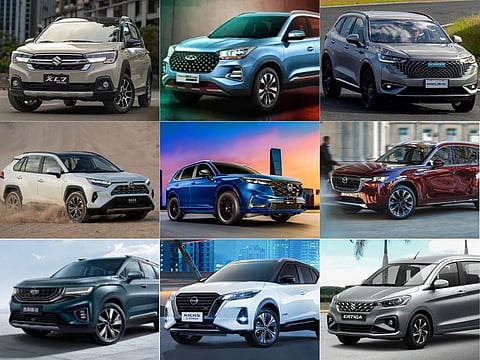Pakistan enforces 62 vehicle safety standards to meet IMF conditions
The rules took effect for all imported vehicles from October 1

ISLAMABAD: Pakistan has rolled out sweeping new auto regulations, enforcing 62 mandatory safety and quality standards for both imported and locally assembled vehicles — a major increase from the previous 17 requirements — in order to meet conditions set by the International Monetary Fund (IMF).
The notification, issued by the Engineering Development Board (EDB) under the Ministry of Industries and Production, marks the country’s most ambitious move yet to bring road safety, environmental compliance, and consumer protection in line with international norms, according to ARY News.
The rules took effect for all imported vehicles from October 1, 2025, while locally manufactured and assembled vehicles must comply from July 1, 2026.
Import regulations
Under the new framework, importers will have to submit pre-shipment inspection certificates from accredited international bodies, including the Japan Export Vehicle Inspection Center (JEVIC), Japan Automotive Appraisal Institute (JAAI), Korea Testing Laboratory (KTL), and China Automotive Engineering Research Institute (CAERI).
Highlights:
Pakistan expands safety standards from 17 to 62 to satisfy IMF conditions.
Imported cars face new inspection rules from Oct 2025; local vehicles from July 2026.
Certificates must confirm vehicles are accident-free, odometers untampered, airbags intact.
Electric vehicles subject to additional checks on batteries, charging and durability.
Only licensed importers allowed; EDB to enforce compliance and reject unsafe vehicles.
These certificates must confirm that imported vehicles are roadworthy, accident-free, odometer-tamper free, and free from serious interior or exterior damage. They must also verify compliance with noise and emission standards, as well as confirm that all safety features — including airbags — remain intact. Vehicles failing to meet any of these criteria will be denied entry.
Only licensed commercial importers will be permitted to bring vehicles into Pakistan. Cars found to emit excessive exhaust fumes, carry worn-out tires, or otherwise compromise safety will be rejected outright.
Electric vehicles face extra scrutiny
Electric vehicles (EVs) will face additional mandatory checks, including verification of battery life, charging compatibility, durability, and recycling capability. These requirements aim to ensure EV safety and sustainability before they are cleared for use in Pakistan.
Oversight and enforcement
The Engineering Development Board will directly oversee compliance. Its inspections will cover a wide range of technical specifications such as seating capacity, load limits, axle configuration, and overall performance and quality. Even if a vehicle passes pre-shipment inspection abroad, it can still be blocked if it fails to meet Pakistan’s own safety, quality, or environmental benchmarks.
Broader impact
Officials say the overhaul will not only improve road safety and consumer protection but also align Pakistan with global automotive standards — a key IMF demand.
The move is also expected to weed out substandard used cars from the local market, improve environmental compliance, and push manufacturers toward safer, more reliable vehicles.
Sign up for the Daily Briefing
Get the latest news and updates straight to your inbox




